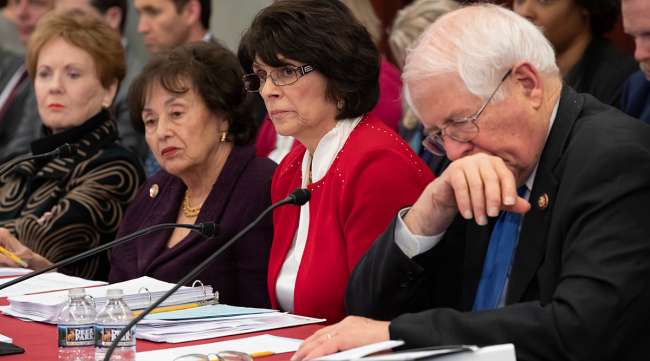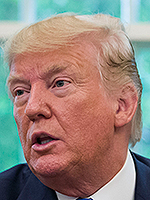Senior Reporter
Fiscal 2020 Transportation Funding Bill Advances in US House

[Stay on top of transportation news: Get TTNews in your inbox.]
Funding for highway safety programs and grants for infrastructure projects nationwide advanced in the U.S. House of Representatives on June 25.
The vote on the fiscal 2020 legislation that appropriated funding for transportation programs was 227-194, with Republicans opposing the measure.
This so-called “minibus” legislation, which moved to the Republican-led Senate for consideration, would fund the U.S. Department of Transportation and the departments of Commerce, Interior, Veterans Affairs, Agriculture and Housing, and Urban Development, as well as environmental programs.
The bill “reflects the determination of Democrats to seriously invest in infrastructure and to give affordable, accessible housing the priority it deserves. It makes transportation and housing safer, addresses the pressing needs of our most vulnerable citizens, and mitigates and responds to the impacts of climate change,” said David Price (D-N.C.), chairman of the House Appropriations Subcommittee on Transportation, Housing and Urban Development, and Related Agencies.
“It invests billions in America’s infrastructure, strengthens and modernizes public housing, and delivers the promise of broadband to rural communities,” added House Appropriations Committee Chairwoman Nita Lowey (D-N.Y.).
House Democrats have wasted opportunity after opportunity to pass meaningful, bipartisan appropriations bills. Instead, they have written bills that irresponsibly increase spending and include partisan riders that Republicans simply cannot support.
Rep. Kay Granger, R-Texas
The funding panel’s top Republican, Rep. Kay Granger of Texas, criticized the “minibus” and emphasized it would not be signed into law.
“House Democrats have wasted opportunity after opportunity to pass meaningful, bipartisan appropriations bills,” Granger said, adding, “Instead, they have written bills that irresponsibly increase spending and include partisan riders that Republicans simply cannot support.”
For DOT, the bill would surpass President Donald Trump’s request and provide $86.6 billion, which would be $167 million more than the 2019 enacted level. An infrastructure grants program at DOT would receive $1 billion.
For the Federal Motor Carrier Safety Administration, the regulatory agency for large trucks and buses, the bill would provide $677 million, $10 million above the 2019 enacted level.

Trump
At other agencies, the bill would provide the Federal Highway Administration $48.9 billion, $1.7 billion above the president’s request and $404 million below the 2019 enacted level. The Federal Railroad Administration would receive $3 billion, $877 million more than the president’s request and $96 million above the 2019 enacted level. The National Highway Traffic Safety Administration would receive $1 billion, $81 million above the president’s request and $44 million above the 2019 enacted level.
For Amtrak operations, the bill would provide $2 billion, highway infrastructure programs would receive $1.75 billion, and the Port Infrastructure Development Program would receive $225 million.
Provisions pertaining to the trucking industry included in the bill’s transportation section include requiring publicly posting certain Compliance, Safety, Accountability program information online, as well as denying funding for FMCSA’s review of an industry concern regarding state meal-and-rest-break laws. FMCSA also would be required to proceed with annual inspections of rear underride guards.
The legislation garnered praise from several groups, such as the American Public Transportation Association. CEO Paul Skoutelas indicated, “This legislation includes important provisions for maintaining and expanding our public transportation infrastructure and represents a commitment by lawmakers to growing our communities, supporting jobs and providing expanded mobility options.”





